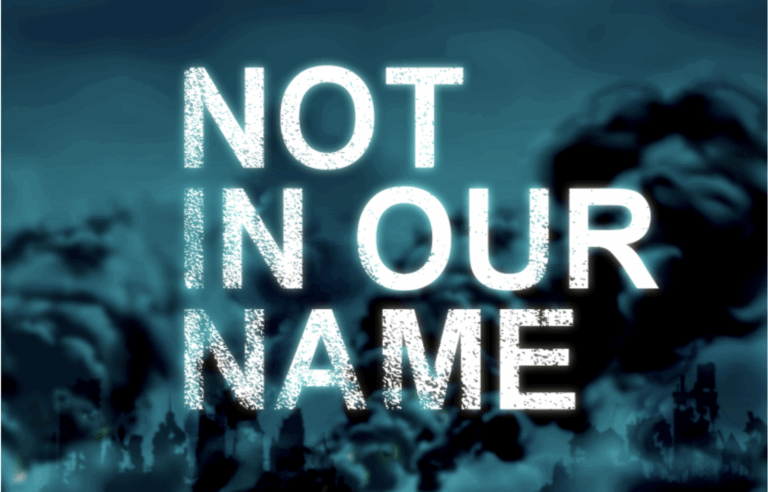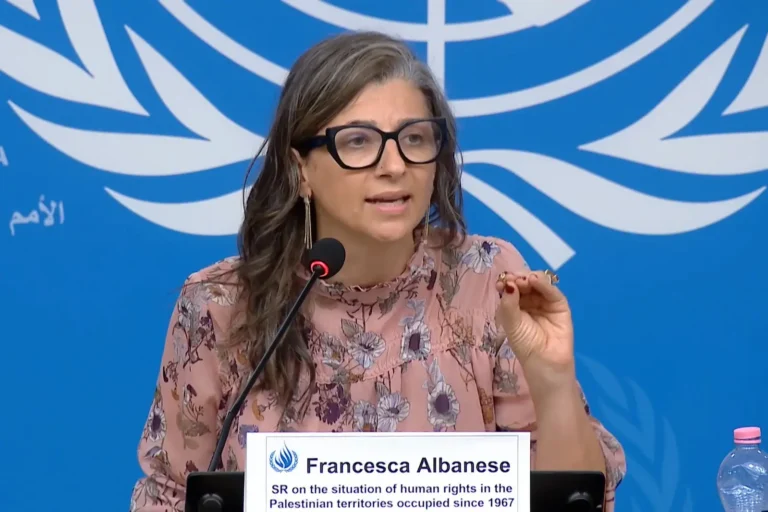By Andrea Tucci,
A new report published by Adalah, a Palestinian-Israeli NGO that provides legal advocacy for the rights of the Arab-Palestinian minority in Israel, documents how Israel is intensifying efforts to consolidate permanent control over the West Bank through sweeping legal and institutional changes.
The 87-page analysis denounces how the Netanyahu government is constructing a complex legal architecture aimed at further depriving Palestinians of their right to self-determination.
While international attention is – rightly – focused on Gaza, the report emphasizes that the West Bank has been undergoing unprecedented structural transformations since the current government took office in December 2022.
Israel is actively changing the legal status of large portions of the West Bank, particularly Area C, which accounts for over 60% of the territory and remains under full Israeli military control. In this area, a growing number of Palestinians are experiencing forced displacement, driven by settler violence and new legislative policies. The Israeli government is exploiting legal mechanisms to entrench a discriminatory land regime and reinforce territorial and racial segregation.
In the years following Israel’s occupation of the West Bank (which began in 1967), new settlement construction was justified on military security grounds.
But since 1981, Israel has gradually shifted the governance of Israeli settlers from military to civilian control, justifying settlement expansion on the basis of:
- the natural growth of the Jewish population,
- economic development,
- the presence of historic or religious ties to the land, particularly in biblical areas such as Hebron or Bet El.
This shift legitimized permanent territorial expansion and drastically increased settlement activity. In recent years, structural reforms have handed even more power to pro-settler officials in the West Bank, under the direct authority of Bezalel Smotrich, Israel’s Minister of Finance and de facto Minister of Defense for the Occupied Territories.
These reforms have institutionalized the existence of two parallel legal regimes:
- a military regime governing Palestinian villages,
- a civilian Israeli regime in Jewish settlements, where Israeli domestic law applies.
It’s important to note that applying Israeli civil law in occupied Palestinian territories constitutes a violation of international law and is widely seen as a form of de facto annexation.
Israel’s designation of “state land” in the West Bank has become the primary legal mechanism for the expropriation of Palestinian land since the late 1970s.
Between 1998 and 2016, around 21.000 dunams (2.100 hectares) were declared state land. But from February to December 2024 alone, Israel designated over 24.200 dunams (2.400 hectares) — more than in the previous 18 years combined.
This represents a historic acceleration in land seizure.
All of this aligns with the Israeli government’s stated vision: that the Jewish people have an exclusive and inalienable right to the entirety of the Land of Israel, and its declared goal of expanding settlements throughout what it calls “Judea and Samaria” – i.e., the entire occupied West Bank.
The erasure of the Palestinian people from their towns, neighborhoods, and lands is further enabled by an increasingly radicalized Israeli public opinion, and by the paralysis of the international community.
While France, Spain, and Ireland have pledged to recognize the State of Palestine, Italy under Prime Minister Giorgia Meloni has taken a strongly pro-Israel stance, arguing that “now is not the right time.”
The premier – a self-declared Christian and mother – stated that recognizing Palestine today would send the “wrong signal” to Israel, especially “in a time of war.”
But what war exactly?
The war in Gaza, where women and children are dying of hunger and bombs every single day?
Meanwhile, in the West Bank, where there is no Hamas and therefore no active war, settlers regularly attack Palestinian villages, often with the support or protection of the Israeli military. They burn homes, seize land, displace entire communities, and even target churches and kill Christian civilians.
True, Israel has claimed that bombing a Christian place of worship was a “mistake”.
But the doubt is more than legitimate, as even Vatican Secretary of State Pietro Parolin has pointed out.
Is that all?
Of course not.
The truth is that more and more people are taking a firm stand against Israel’s actions, demanding an end to the systematic violations of international law against the Palestinian people:
military occupation, colonization, apartheid, collective punishment, forced displacement, and daily repression affecting millions of civilians in Gaza, the West Bank, and East Jerusalem.
More and more of us are saying:“We are all Francesca Albanese.”
Because the truth can no longer – and must no longer – be silenced.



